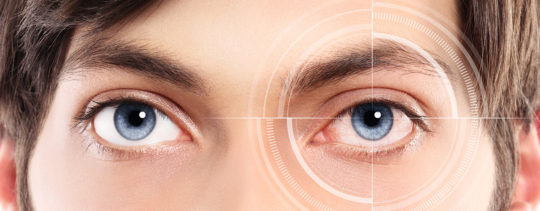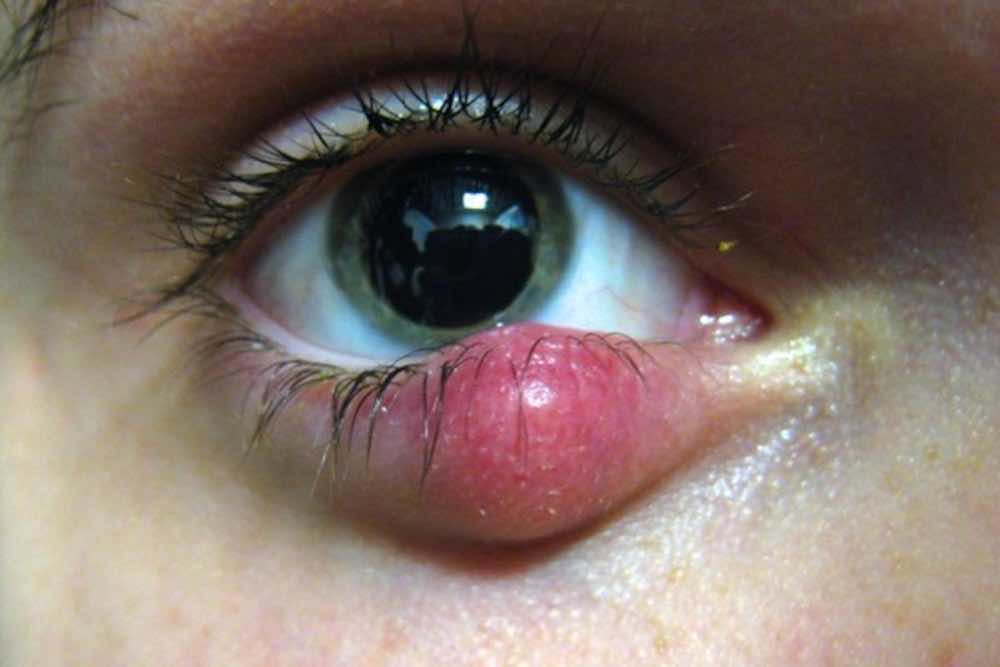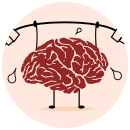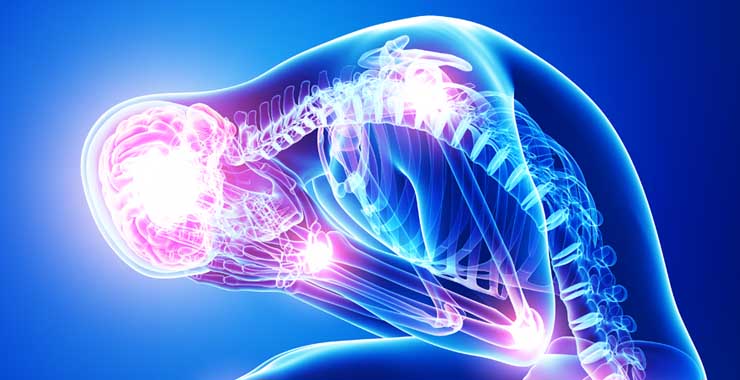1.Why do you need to sleep?

During sleep, your body is working to support healthy brain function and maintain your physical health. In children and teens, sleep also helps support growth and development. Getting inadequate sleep over time can raise your risk for chronic (long-term) health problems. Be consistent. Go to bed at the same time each night and get up at the same time each morning, including on the weekends. Make sure your bedroom is quiet, dark, relaxing, and at a comfortable temperature. Remove electronic devices, such as TVs, computers, and smart phones, from the bedroom.
2.How much sleep do you need
Sleep is a period of rest that alternates with wake fulness. You have internal body clocks that control when you are awake and when your body is ready for sleep. These clocks have cycles of approximat ely 24 hours.Sleep is a state of reduced mental and physical activity in which consciousness is altered and sensory activity is inhibited to a certain extent. Sleep is important to a number of brain functions, including how nerve cells (neurons) communicate with each other. In fact, your brain and body SleepFoundation.org is the leading source for evidence-based, medically reviewed sleep health information and in-depth product testing. Sleep is a state of reduced mental and physical activity in which consciousness is altered and sensory activity is inhibited to a certain extent.

While all stages of sleep are necessary for good health, deep sleep offers specific physical and mental benefits. During deep sleep, your body releases growth hormone and works to build and repair muscles, bones, and tissue. Deep sleep also promotes immune system functioning. Try to go to sleep and get up at the same time every day. This helps set your body's internal clock and optimize the quality of your sleep This helps set your body's internal clock and optimize sleep.
3.Why sleep is important?
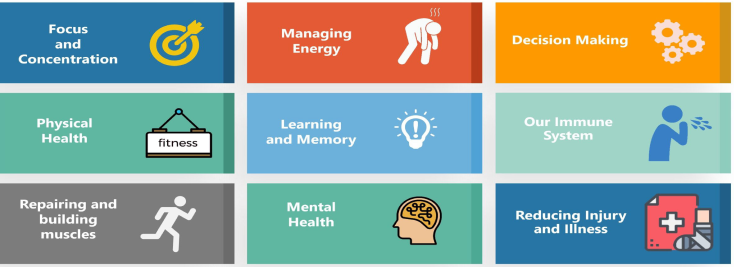
- Repairing wear and tear after training/exercise/competition
- Managing our energy stores
- Decision making
- Focus and concentration
- Physical health
- Mental health
- Learning and memory
- A healthy immune system
- Our cardiovascular health
4.How much sleep do you need?
The states that adults require between 7 and 9 hours of sleep for optimal performance and health, while adolescents ideally should have between 8 and 10 hours. Athletes may require more sleep than less active individuals and it has been suggested that this could be between 9 and 10 hours.Good sleep improves your brain performance, mood, and health. Not getting enough quality sleep regularly raises the risk of many diseases and disorders. These range from heart disease and stroke to obesity and dementia.Sleep is important to a number of brain functions, including how nerve cells (neurons) communicate with each other. In fact, your brain and body stay remarkably active while you sleep. Recent findings suggest that sleep plays a housekeeping role that removes toxins in your brain that build up while you are awake.







